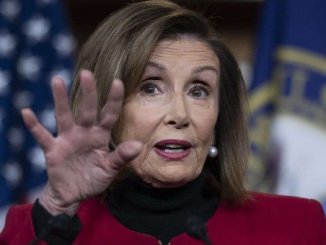
Auburn University Assistant Professor of Psychological Sciences Tiffany Brown and San Diego State University Professor of Psychology Aaron Blashill developed the Promoting Resilience to Improve Disordered Eating (PRIDE) program to address the identity-related stressors that they believe increase the risk of developing eating disorders – something routine treatments today reportedly do not account for.
{snip}
According to the publication, LGBTQ+ people are not only three times as likely to develop an eating disorder but are also more likely than non-LGBTQ+ people to quit treatment.
NIMH awarded the grant after an initial study using the PRIDE program saw a 75% remission rate in eating disorders.
The program is virtual, making it accessible nationwide.
The conservative outlet Daily Caller mocked the Biden administration’s support of the program and said that Trump’s incoming administration “could be poised to crack down on Biden’s LGBTQIA+ agenda…. [with] the creation of a Department of Government Efficiency (DOGE).”
Indeed, anti-trans billionaire Elon Musk will co-lead DOGE with anti-LGBTQ+ entrepreneur Vivek Ramaswamy. Despite its name, the group is merely a nongovernmental advisory commission that can only make recommendations to federal officials rather than make any actual changes. Musk and Ramaswamy will make suggestions on which federal departments and roles to defund, though any defunding may first require congressional approval.
{snip}
An op-ed in The Hill warned of the dangers DOGE could bring, explaining, “The idea that slashing federal agencies is a magic bullet for achieving good governance is as wrong-headed as it is simplistic.” The writers said conservatives often use “inefficiency” as “an all-purpose invective against government, often used to justify aggressive efforts to cut back programs that benefit millions of Americans.”
They added that making programs more “efficient” means making policymakers unaccountable to the American people because it dismantles the levels of authority designed to ensure “regulatory effectiveness.”
“The effort also disregards the fact that federal authority to address social problems is often desirable and necessary,” they added, “and that federal efforts to handle these matters are more efficient than devolving them to the states. The choice between centralized or decentralized authority requires careful consideration of trade-offs between efficiency, effectiveness and accountability.”
* Original Aricle:


